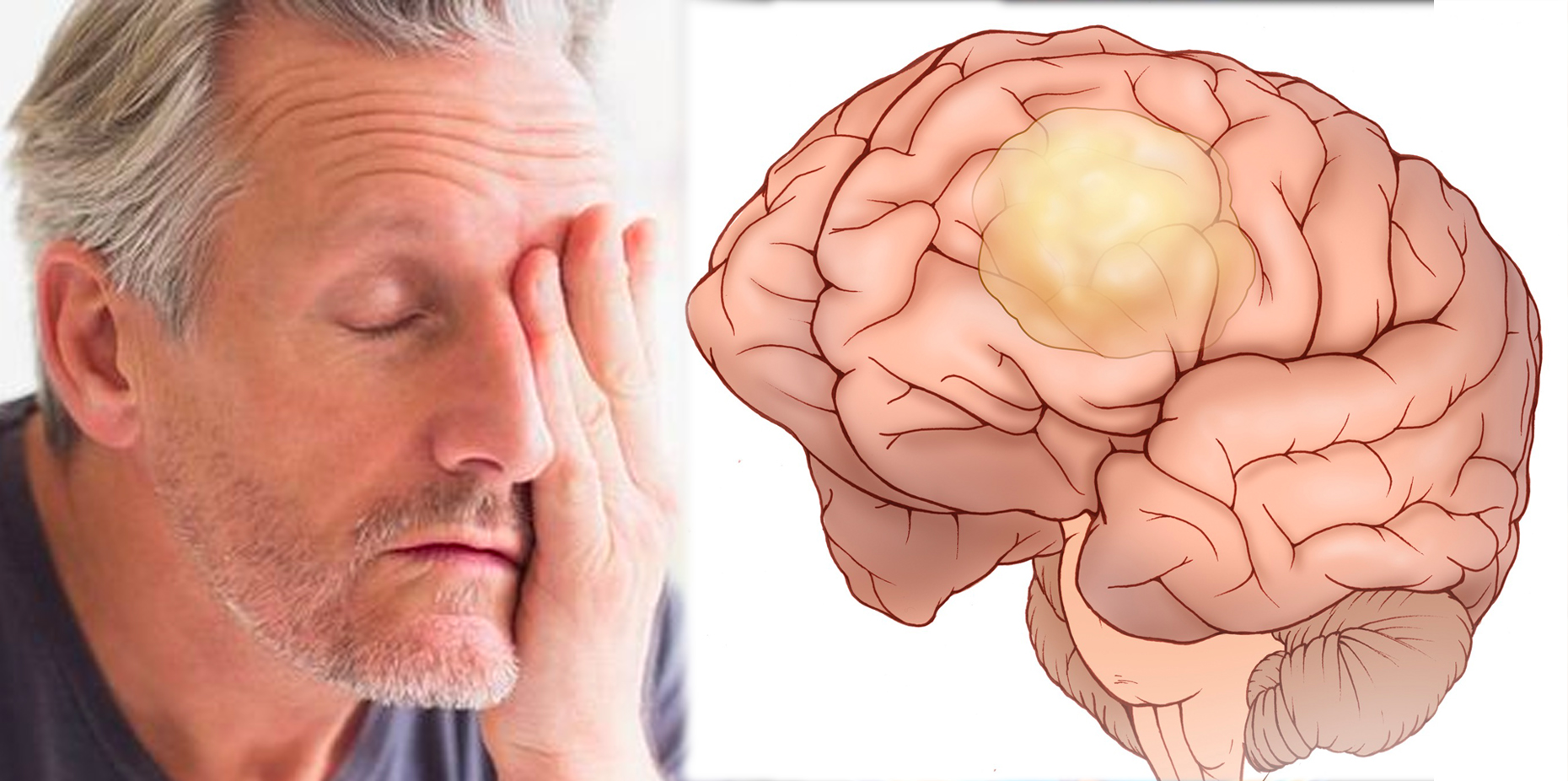Epilepsy impacts approximately 50 million individuals globally, and nearly 3.5 million people in the United States, according to data from the Centers for Disease Control and Prevention (CDC) (1).
Table of Contents
What is Epilepsy?
Epilepsy is a chronic condition characterized by recurrent seizures, which are caused by abnormal electrical signals in the brain (2, 3). A seizure refers to a sudden a sudden, uncontrolled burst of electrical activity in the brain. Typically, the brain generates small electrical impulses in an organized manner, which travel through neurons and communicate with the body via neurotransmitters. However, in epilepsy, there is a tendency for the brain’s electrical rhythms to become disrupted, leading to repeated seizures.
These seizures occur when sudden bursts of electrical energy disturb the brain’s normal pattern, resulting in temporary effects on consciousness, movement, or sensation. Diagnosing epilepsy usually involves identifying at least two seizures that are not attributable to other medical conditions or factors, such as severe low blood sugar or alcohol withdrawal.
Types of Epilepsy
Epilepsies are categorized by healthcare providers based on the type of seizures individuals experience (4). Seizure classifications depend on their origin within the brain, the level of consciousness during a seizure, and the presence or absence of muscular movements. Broadly, there are two main groups of seizures:
Focal Onset Seizures
These seizures originate in a specific area or network of cells on one side of the brain. Formerly referred to as partial onset seizures, they include two distinct types:
- Focal Onset Impaired Awareness Seizures: These seizures may lead to a loss of consciousness. Individuals experiencing them may engage in involuntary actions, such as lip smacking, chewing, leg movements, or pelvic thrusting, without awareness of their actions (5).
- Focal Onset Aware Seizures: Also recognized as simple partial seizures or simple focal seizures, individuals remain conscious and alert throughout the episode. These seizures are typically brief, often lasting less than 2 minutes. During this time, responsiveness to external stimuli may vary.
Generalized-onset Seizures
Generalized onset seizures may impact a widespread network of cells on both sides of the brain simultaneously. There are six types of generalized seizures, each with its own characteristics.
- Tonic-clonic seizures: This type combines muscle stiffness (tonic) with rhythmic muscle jerking (clonic). It is often referred to as a convulsion or grand mal seizure, involving loss of consciousness, falling, muscle stiffening, and jerking for one to five minutes. It may also result in biting the tongue, drooling, and loss of bladder or bowel control (6).
- Tonic seizures: Tonic seizures involve a significant increase in muscle tone, resulting in stiffness or tension in the arms, legs, or the entire body (7). This may lead to falls and might be associated with a minor change in awareness, lasting for less than 20 seconds.
- Clonic seizures: Clonic seizures are characterized by rapid, repetitive muscle jerks (8).
- Myoclonic seizures: Myoclonic seizures cause brief, shock-like muscle jerks or twitches and typically last only a couple of seconds (9).
- Absence seizures: This type of seizure may result in a blank stare or a brief loss of awareness, often accompanied by minor muscle movements such as eye blinking, lip-smacking, or hand motions. It is more prevalent in children, typically lasting for only a few seconds and may be mistaken for daydreaming. Absence seizures were previously referred to as petit mal seizures (10).
- Atonic seizures: Atonic, meaning “without tone,” leads to a loss of muscle control or weakness during the seizure, often causing parts of the body to droop or fall. This type is also known as a “drop seizure” or “drop attack” and lasts for a short duration, usually less than 15 seconds (11).
Understanding the different types of epilepsy seizures is crucial for proper diagnosis and management. If you or someone you know experiences symptoms suggestive of epilepsy, consulting with a healthcare professional is essential for accurate evaluation and tailored treatment strategies.
Symptoms of Epilepsy
Epilepsy manifests primarily through recurring seizures, though the specific symptoms may vary based on the type of seizure experienced. These symptoms may include:
- Temporary Loss of Awareness: Moments of unconsciousness or altered consciousness (12).
- Blank Stares: Episodes of staring into space or lack of responsiveness (13).
- Cognitive Effects: Temporary confusion, slowed thinking, or difficulty with speech and comprehension (14).
- Uncontrolled Muscle Movements: Jerking or loss of muscle control (15).
- Gastrointestinal Distress: Upset stomach or sensations of heat, cold, or goosebumps (16).
- Automatisms: Involuntary repetitive movements like lip-smacking, chewing, or hand motions (17).
- Sensory Changes: Alterations in hearing, vision, taste, smell, or sensations of numbness and tingling (18).
- Psychic Symptoms: Feelings of fear, dread, anxiety, or déjà vu (19).
- Physiological Responses: Increased heart rate and/or breathing (20).
It’s essential to note that individuals with epilepsy may experience a consistent pattern of symptoms with each seizure, but the specific manifestations might still vary widely among different people.
Causes of Epilepsy
Understanding epilepsy involves navigating through various factors that contribute to its occurrence. While in many cases, the exact cause remains elusive, it’s crucial to recognize the potential factors that might play a role. Here’s an overview:
- Genetics: Certain types of epilepsy, like juvenile myoclonic epilepsy and childhood absence epilepsy, tend to have a familial pattern. Although specific genes are implicated, they only elevate the risk, suggesting the involvement of other factors (21).
- Head Injuries: Traumatic incidents such as vehicular accidents or falls leading to head trauma might provoke seizures (22).
- Mesial Temporal Sclerosis: Scar formation within the temporal lobe might trigger focal seizures, underscoring the intricate relationship between brain structure and epilepsy (23).
- Immune Disorders: Autoimmune conditions targeting brain cells may precipitate epilepsy, highlighting the complex interplay between the immune system and neurological health (24).
- Malformations of Brain development: Birth abnormalities impacting brain development often correlate with epilepsy, particularly in cases resistant to conventional treatments. Examples include focal cortical dysplasia and tuberous sclerosis (25).
- Brain Infections: Various infections affecting the brain, including meningitis and encephalitis, might induce epileptic episodes (26).
- Brain Conditions and Vascular Abnormalities: Brain tumors, strokes, and vascular malformations are among the diverse range of cerebral issues linked to epilepsy (27).
- Metabolic Disorders: Certain metabolic conditions predispose individuals to epilepsy, emphasizing the importance of comprehensive health assessments (28).
By acknowledging this complexity, healthcare providers and researchers may better navigate treatment options and support those affected by epilepsy with empathy and understanding.
Risk Factors of Epilepsy
In roughly half of epilepsy cases, the exact cause remains unknown, as noted by the World Health Organization (WHO) (1). Numerous factors might potentially contribute to the onset of seizures, including:
- Family History: Individuals with a family history of epilepsy may face an increased susceptibility to seizures (29).
- Age: Although epilepsy onset is commonly observed in children and older adults, it’s essential to recognize that this condition might manifest at any age (30).
- Stroke and Vascular Diseases: Conditions like stroke and other vascular disorders have the potential to inflict brain damage, subsequently heightening the likelihood of seizures and epilepsy (31). Lifestyle choices such as moderating alcohol intake, abstaining from smoking, maintaining a nutritious diet, and engaging in regular exercise may help reduce the risk of these diseases (32).
- Dementia: Older adults with dementia are at an elevated risk of developing epilepsy (33).
- Brain Infections: Infections such as meningitis, which provoke inflammation in the brain or spinal cord, may elevate the risk of epilepsy (34).
- Seizures in Childhood: Children who experience febrile seizures are more likely to develop epilepsy compared to those who do not. Nonetheless, the likelihood of developing epilepsy following a single, simple febrile seizure is marginally higher than for children who have never had a febrile seizure (35). The risk of epilepsy escalates in cases of prolonged febrile seizures, concurrent nervous system disorders, or a familial predisposition to epilepsy (36).
- Head Injuries: Traumatic head injuries are implicated in some epilepsy cases. Mitigating this risk may be achieved by adopting safety measures such as wearing seat belts in vehicles and helmets during activities prone to head injuries like biking, skiing, or motorcycling (37).
While these risk factors shed light on potential contributors to the condition, it’s crucial to remember that each individual’s experience with epilepsy is unique. Seeking support from healthcare professionals and fostering an environment of empathy and understanding might significantly impact the journey of those affected by epilepsy.
Complications of Living with Epilepsy
Living with epilepsy might present various challenges and potential complications that may affect your daily life. It’s essential to be aware of these factors to effectively manage the condition and reduce risks. Here’s a breakdown of some potential complications:
- Car accidents: Seizures that result in loss of awareness or control may be hazardous, particularly when driving or operating machinery. Many states impose restrictions on driving for individuals with epilepsy, requiring a certain period of seizure-free time before resuming driving privileges (38).
- Drowning: Individuals with epilepsy face a significantly higher risk of drowning during activities such as swimming or bathing, mainly due to the possibility of experiencing a seizure while in the water (39).
- Falling: Seizures may lead to falls, increasing the risk of head injuries or broken bones.
- Sleep disturbances: It’s common for people with epilepsy to experience difficulties falling asleep or staying asleep, a condition known as insomnia, which may further impact overall well-being (40).
- Memory issues: Some types of epilepsy are associated with memory difficulties, which may affect various aspects of daily functioning (41).
- Pregnancy complications: Seizures during pregnancy pose risks to both the mother and the baby. Additionally, certain anti-seizure medications may increase the likelihood of birth defects. Planning pregnancy with medical guidance is crucial for managing epilepsy effectively, as adjustments to medications and careful monitoring are often necessary to ensure the health of both mother and child (42).
Dealing with epilepsy and its potential complications might be challenging, but it’s essential to remember that you’re not alone. Seeking support from healthcare professionals, support groups, and loved ones might make a significant difference in managing the condition effectively.
Diagnosis of Epilepsy
If you suspect you’ve experienced a seizure, it’s crucial to consult a doctor promptly. Seizures may signal underlying medical conditions that require attention. Your doctor will rely on your medical history and symptoms to determine which tests are appropriate for you. A neurological examination, assessing your motor skills and mental faculties, is likely (43). When diagnosing epilepsy, it’s important to rule out other potential causes of seizures. Your doctor may order a complete blood count (CBC) and blood chemistry analysis. Blood tests are useful for detecting:
- Liver and kidney function
- Blood glucose levels
- Signs of infectious diseases
The most common test for epilepsy diagnosis is an Electroencephalogram (EEG) (44). This painless, noninvasive procedure involves placing electrodes on your scalp to detect abnormal brainwave patterns. Sometimes, you may be asked to perform specific tasks during the test, or it may be conducted while you sleep. Other diagnostic tests your doctor might recommend include:
- Blood tests to identify infections or other medical issues causing seizures
- Additional EEGs to monitor brain activity
- CT scan, a powerful X-ray that creates detailed brain images, useful for identifying underlying causes like tumors or infections
- MRI, which uses magnets and radio waves to produce detailed brain images, helpful for detecting tumors or infections
Typically, an epilepsy diagnosis requires experiencing two or more seizures at least 24 hours apart (45). However an epilepsy syndrome can be diagnosed after one seizure, even though a single seizure is insufficient for the diagnosis of epilepsy. It’s important to remember that seeking a diagnosis is the first step towards managing epilepsy effectively. Your doctor is there to support you through this process and provide the necessary guidance and care. Don’t hesitate to reach out for assistance and support.
Treatment Options for Epilepsy
Navigating the realm of epilepsy treatment might be overwhelming, but understanding your options may provide hope and empowerment. Treatment approaches may vary based on factors such as the severity of your symptoms, your overall health, and how your body responds to therapy. Here’s a glimpse into the diverse landscape of epilepsy management:
- Medication: Antiseizure medications serve as the cornerstone of epilepsy treatment, aiming to reduce seizure frequency or even achieve seizure freedom. These medications work by modulating neurotransmitters in the brain, dampening excessive electrical activity. Remember, adherence to your prescribed medication regimen is crucial for optimal efficacy. There’s a plethora of antiseizure drugs available, each tailored to specific seizure types. Your healthcare provider may recommend single or combination therapy based on your individual needs. If one medication proves ineffective, don’t lose heart—alternatives exist, and adjustments might be made to find the most suitable option (46).
- Rescue Medications: In emergency situations, specific medications and treatments may swiftly intervene to halt seizures. These interventions, administered nasally, orally, sublingually, buccally, or rectally, are complementary to daily medications and should be utilized under prescribed circumstances (47).
- Brain Surgery: When medication fails to sufficiently control seizures, brain surgery emerges as a viable alternative. Surgical interventions aim to remove or alter the seizure-generating region of the brain. While surgical options offer promise, they entail risks and require thorough consideration. Open dialogue with your healthcare team and seeking second opinions may aid in making informed decisions (48).
- Ketogenic Diet: For individuals resistant to medication and ineligible for surgery, dietary interventions like the ketogenic diet present an avenue worth exploring. High in fat and low in carbohydrates, this dietary approach has shown promise, particularly in pediatric cases (49).
- Other treatment options: As research advances, novel treatments such as deep brain stimulation hold potential for broader implementation. This procedure, involving the implantation of electrodes connected to a generator, aims to mitigate seizures by delivering targeted electrical impulses to the brain.
In your journey with epilepsy, know that you’re not alone. Your healthcare team is here to support you every step of the way, tailoring treatment to your unique needs and aspirations. Together, we strive towards improved seizure management and enhanced quality of life.
Prevention of Epilepsy
While epilepsy might stem from various causes beyond your control, taking certain precautions may reduce the risk of developing conditions that could lead to epilepsy (50). To minimize the risk of traumatic brain injury, it’s recommended to wear a seatbelt while driving, practice defensive driving, wear a helmet when biking, and ensure your living spaces are free of clutter and hazards. Lower your risk of stroke by adhering to a healthy diet, such as the Mediterranean diet, maintaining a healthy weight, and engaging in regular exercise. Address substance abuse through by seeking psychiatric treatment to prevent harm to the brain (51).
Avoiding Seizure Triggers
Individuals with epilepsy often report specific triggers that might provoke seizures (52). While avoiding or mitigating these triggers may help reduce seizures for some, it’s important to note that not all triggers might be avoided, and seizures may still occur without identifiable triggers. Commonly reported triggers include:
- Insufficient sleep
- Certain drugs, both prescription and recreational
- Stimulation from flickering lights or patterns
- Missed medication or changes in medication
- Alcohol consumption
- Menstruation
- Illness, particularly with diarrhea or vomiting
- Stress
- Significant changes in temperature or overheating
Identifying Your Seizure Triggers
Some individuals notice patterns in their seizures, occurring at specific times of day or in association with particular events or circumstances. Keeping a seizure diary may help track these occurrences and potential triggers.
Record the time of day of each seizure, surrounding events, and your emotional state. If you suspect a trigger, monitor its effects to determine its validity. For instance, if you suspect caffeine as a trigger, observe if seizures consistently follow its consumption or if there are other contributing factors.
Questions to Discuss with Your Doctor
If you’ve recently received an epilepsy diagnosis, consider asking your doctor the following questions during your next appointment:
- Could my seizures worsen without medication or other treatments?
- What type of epilepsy do I have?
- What steps should I take during another seizure?
- Do I need a seizure action plan?
- What side effects might I experience from medication, and how should I manage them?
- Are there any restrictions on activities like swimming or other recreational pursuits?
- Is alcohol consumption safe for me?
- Is it safe for me to drive? If not, when can I resume driving?
- How should I communicate about my condition with friends, family, and coworkers?
- Are there local support organizations for epilepsy that I can access?
- Could brain surgery effectively control my seizures?
Living with epilepsy may present challenges, but by taking proactive steps and seeking support, you might better manage your condition. Remember, you’re not alone, and there are resources available to help you navigate this journey with confidence and resilience.
Conclusion
Living with epilepsy may be challenging, as it often comes with uncertainties and unexpected hurdles. However, it’s essential to remember that you’re not alone. Millions of people around the world navigate similar experiences every day. While seizures may disrupt daily life, they don’t define who you are as a person.
Despite the challenges, many individuals with epilepsy lead fulfilling lives, pursuing their goals, and contributing to their communities. By staying informed, proactive, and resilient, you can empower yourself to live well with epilepsy.
Above all, be kind to yourself. Living with epilepsy requires patience and self-compassion. Celebrate your victories, no matter how small, and don’t hesitate to reach out for help when needed. With the right support and mindset, you can overcome obstacles and thrive, embracing life to the fullest.












